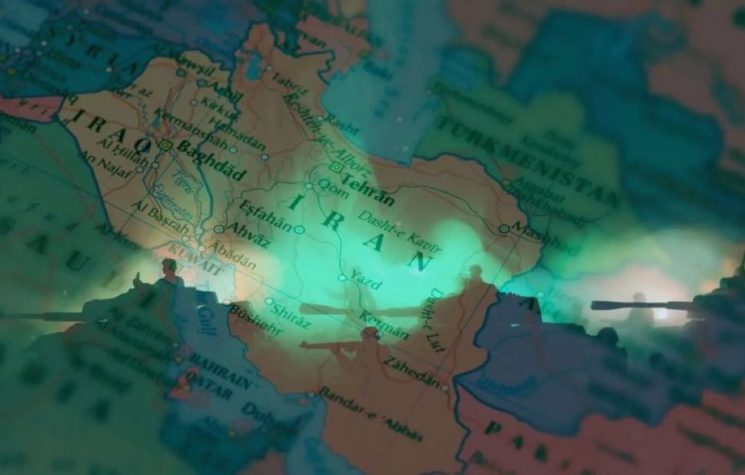An endearing idea that all Israeli leaders have deep in their hearts is that one day Israel could colonize Lebanon.
Contact us: info@strategic-culture.su
There has always been a fatal attraction that Israel has harboured towards Lebanon. An endearing idea that all Israeli leaders have deep in their hearts is that one day Israel could colonize this tiny country. It was certainly Ariel Sharon’s view in 1982 when Israel’s army went all the way to Beirut to kill Palestinian fighters – who had fled earlier to Tunisia – and had to commiserate themselves with slaughtering thousands of civilians in the Palestinian camps of Sabra and Shatila. What is rarely reported correctly though about that massacre, is that it was mostly women, many of whom were Lebanese.
At that precise moment in September 1982, the Israeli thinking was to install in Lebanon a Christian president who would act on Israel’s behalf. That man were to be the leader who carried out the massacres in those two very camps, Bachir Gemayel who had just been elected President – not without the help of Israel. Yet it was not to be. Syria, then a regional super power, assassinated the young leader and Israel’s plans of colonizing Lebanon were dashed.
Is Israel seeking to do the same thing in Lebanon today? It’s certainly thinking big. Barely a few days after crossing the border its troops are not winning against Hezbollah forces, many of whom have killed at least 20 IDF soldiers and destroying three tanks in just one day. Concurrent to this failed operation which sent helicopters in to ship the soldiers to hospitals in Haifa, Israel’s bombardment in Beirut does however wipe out many Hezbollah fighters and their families in the southern suburb where they are living. And yet, in recent days we have seen this bombing shift to Sunni areas of Beirut whose communities support Palestinians and where Hamas and Fatah leaders may well be living. This strategy on its own is interesting as it shows that Netanyahu now thinks of Lebanon as an enemy, whose borders are not limited to Hezbollah’s demographics and his video message to Lebanon “the Lebanese people are not our enemy, only Hezbollah” is of course a lie.
Rockets fired right into Palestinian refugee camps – one in Saida in the south – show that its intentions to wipe out Palestinians are not limited to Israel’s borders. Did the Israelis get an intelligence tip off that Hezbollah was about to recruit thousands of these young Palestinians to fight the IDF in the south? Possibly.
This strategy though to hit Palestinians or even just Sunni communities in Beirut is just one component of Netanyahu’s overall suicide strategy. If Hezbollah finds itself low in numbers on the battlefield, it will no doubt draw fighters from Lebanon’s huge Sunni community which could well be a game changer in a conventional guerrilla war.
Netanyahu has fallen into the trap that snares nearly all Israeli leaders. The belief that Lebanon is ripe to be taken and within days such a victory gives Israel a new level of leverage in the region against those who are angered by its power grab. If Israel’s poor infantry and tank divisions couldn’t hold Lebanon in 2006 without considerable losses, then one has to ask how would they expect to do it now, given that Hezbollah is a much more disciplined and experienced fighting force that in 06? Moreover, how could it dream of taking on Lebanon and taking control of the region south of the Litani river when Hezbollah fighters will be in their element? While it is true that Hezbollah has been hit hard by both the assassination of its leader and a number of commanders, it would be unwise to underestimate its strength on the battlefield, especially given that Israel’s bombing campaign and its genocide in Gaza has united more Lebanese than ever before. Israel had the upper hand before it crossed the border, but now that gamble is showing signs of being a bad bet for Netanyahu.
But given the constellation of miscalculation and feral strategizing, one could say it is overshadowed by Israel’s predicament where the whole world watched with jaw ajar as its own ‘iron dome’ defence system spectacularly failed to stop at least 200 missiles from Iran, many hypersonic. While the average blue colour worker in the UK who gets his international news from Sky might swallow the British government’s hilarious narrative that none of the missile struck anything, Netanyahu’s hands will be trembling like they’ve never shaken before. His biggest and most riskiest gamble has just flopped. Not only has the Biden administration not fallen for the ruse of being drawn into a war with Iran, but now, as hours become days, his own strategies now all look like those of a madman. A number of strategic military sites were hit inside Israel although western media so-called journalists don’t go and film them, allowing Netanyahu to play down the attack.
It’s hard of course to determine what strength Israel has now as its resources are stretched to breaking point and the half wits at Sky News are lying to us about the real situation on the ground. But Iran’s targeted strike of military infrastructure was as cunning as a fox on a moped. Not only is your Iron Dome useless against many of our missiles, but we can hit your military bases, is the message. Even Netanyahu must be in a state of shock now, which explains the pause. He must be having frantic backchannel talks with Washington while talking to his generals about what is the wise move now. To retaliate or to leave the battlefield with the men and equipment which you will surely lose with the next strike and to concentrate now on Lebanon? Or to try and strike Iran’s infrastructure, perhaps its oil refineries which are sitting ducks? Yet to do this without America, alone, means to also deal with what would come back to Israel, perhaps twice as much as before, and for the U.S. to wag its finger with ‘we warned you’ condescension.
Netanyahu has to choose between the hot oil of the pan, or the flames beneath it. And he not only has to worry about being drawn into the trap of Lebanon, he has to think of the role of other allies to Hezbollah like Syria and Russia. Some analysts at this point might be patting themselves on the back, if they predicted the demise now of Netanyahu. He has failed in Iran as his massive gamble has backfired. Not even his wisest generals could have guessed the reaction of Tehran; and he is failing in Lebanon with his ground invasion, which he really didn’t need to do. The game is up.












































